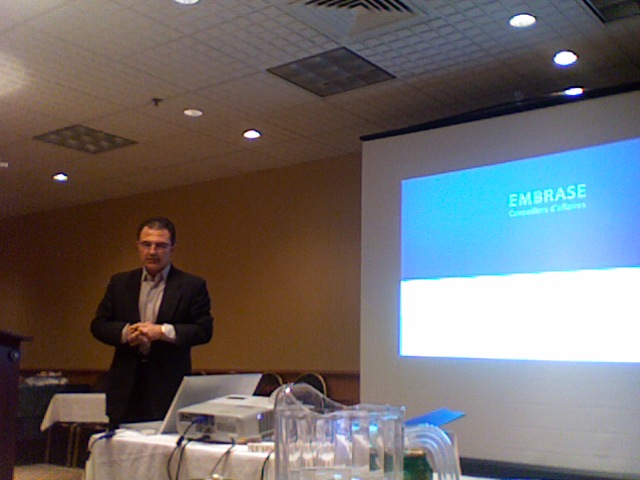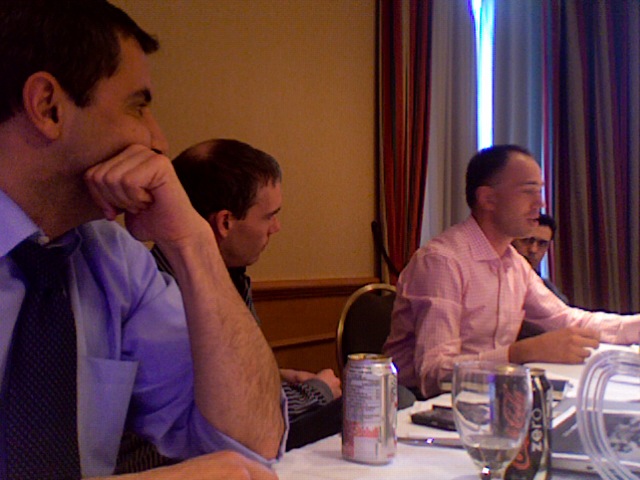16 Jun Meet Emmett Patton, our new intern
Speech Improvement Inc is delighted to have Emmett Patton as our intern for the summer.
Emmett studies psychology and linguistics at Boston University and is a singer in an acappella group called “The Dear Abbeys“.
> Emmett, why did you chose these majors?
Understanding people’s behaviors and the biological and environmental factors that contribute to those behaviors has always been fascinating to me. I’m also very interested in language – how it develops, and the ways in which it can be used in social interactions to influence people’s behaviors. Combining these studies has been an interesting endeavor. The Speech Improvement Company seems to be a very good platform for observing these phenomena.
> How did your passion for music develop?
My passion for music developed as a result of being surrounded by musicians my whole life. My parents were in a band together when they were younger – my mom was the lead singer and my dad played bass. They encouraged my brother and I to learn to play instruments as kids. My brother picked up the guitar and I learned the piano. There was always someone playing music in my house growing up. It wasn’t until high school, though, that I started singing. I joined the choir in my junior year, and then when I got to college I decided to join an acapella group.
> Who are the Dear Abbeys?
The Dear Abbeys are the only all-male acapella group at Boston University. We were founded in 1992, and we perform in and around Boston throughout the school year. We hold auditions every year for new guys to replace the guys who graduate, so the group is constantly changing.
We’re named after the wife of the Dean of Students at BU, who used to work in the Student Activities Office. The founders of the group didn’t have a name in mind when they went to her office to create the group, so they asked her what her name was. She said “Abbey,” so we became the Dear Abbeys.
> What do you sing?
Next year will be my third year in the group, and my second year as President, but that makes no difference when it comes to choosing songs to perform. Every semester, we hold a “pitch session” to which everyone brings three songs that they want the group to perform. We listen to all of the songs, and after a long a complicated voting process, we end up taking between 4-6 new songs each semester. Basically, the songs we perform depend on the personal tastes of the members of the group, which change from year to year. In general, though, we usually do more contemporary, pop/rock type songs.
15 May “Making choices with language” by Debbie London
“I’m not trying to over-simplify things,” says London, “but communication is about making choices. We make choices with the language we use whether we’re being purposeful or not and those choices have effects.” 
When asked if she could elaborate, London continued; “Perception is reality. How individuals recall and interpret a moment or a memory shapes the way s/he behaves. Language is the tool we use to shape those perceptions. If we use negative or derogatory terms to reference some one or some thing, we are inevitably going to behave in like manner. If, however, we think or talk about some one or some thing in glowing and positive terms, we’ll behave accordingly.”
Taking this outside the classroom and into the boardroom is what London has been applying recently; although, she started thinking about perception and reality as a college student. As a sophomore at Syracuse University, Debbie London was diagnosed with Multiple Sclerosis. “There was very little literature written about living with MS at that time [1980’s], especially something that wasn’t written for the medical community, “There have got to be so many people who live a successful life in spite of having MS and in spite of the dooming and limited literature that currently exists,” recalls London.
That revelation led Debbie to writing a doctoral dissertation on language shaping reality. She talked with women who live with MS and discovered that they live successfully with MS largely because of the language they use. “Rarely will you hear someone with MS say, ’oh, poor me’, but more likely you will hear her or him say, ‘Yes, I have MS, and while I’m not happy about it, lots of people have problems.’”
Now when London works with clients, she uses a similar strategy. “If you think confidently, if you use confident and assertive verbal and nonverbal communication,” London says, ”others will perceive you as competent and confident. And perception is reality.”
Dr. Debbie London is an accomplished coach and consultant who brings a combination of international experience and understanding of human interaction to her clients. This is how her biography starts out on The Speech Improvement Company’s website. A former college professor of communication studies, Dr. London has a wide array of experiences on which to draw. When she uses those experiences to make a point with students or clients, the common thread is communication.
17 Apr Sales tips from Dikram Husseindjian
Dikram Husseindjian is a former VP of Sales at Apple Inc, Canada.
Dikram is now senior partner at Embrase a consulting firm in Montreal, QC. “For the past eight years he was National Sales Manager at Apple Canada, leading the sales team to top performance in revenue and profitability growth. Prior to joining the information technology sector, he spent 5 years in marketing and product management in the manufacturing sector for companies that include Honeywell, Bristol-Meyers and Hunter Douglas.”
He was invited by iNovia Capital and gave a one-hour long presentation on sales strategies.
One of the mistakes Dikram says sales representatives make, is that they keep the CEO of the company they are trying to sell to, involved throughout the sales process.
While Dikram says that a sales representative should start to enter as high as possible, including CEO level, he recommends that after this initial step, the CEO be not involved with details in the middle parts of the sales process. Instead, he should be called again in the closing stages of the process.
The sales process itself is composed of six steps:
Discovery -> Qualifying -> Evaluating -> Decision -> Purchase-> Deploy
Throughout this process, three key variables will have varying degrees of importance.
Solution Fit: critical at first but decreases in importance.
Price: important at the beginning and end of the process.
Risk: rises for the potential purchaser as time passes.
In short, sales is about strategy and formalising procedures rather than a series of improvisations.

16 Apr Hearts, minds, wallets
During this second day of presentations, Austin Hill, suggested a way for start-up companies to think about their pitches to investors.
HEARTS –> MINDS –> WALLETS
The key he says, is to first appeal to the “hearts” of the potential investors through a narrative that will get them excited about their service of product. Then you have to back the story with data and a concrete business plan to win theirs “minds”. If these are performed convincingly, they are the way to the money; or their “wallets”.
Incidentally, Austin doesn’t think start-up companies not to mention valuation at the end of their pitch. Instead, he suggests they say that there are different ways of valuing the company and that “we will be happy to discuss these in more details in a further meeting”.
What transpired from this second day is that start-up companies need to develop a narrative around their service or product but that they shouldn’t give away all that they have. Rather they should think about their pitch as “teasing” the VC’s into wanting more.

14 Apr J’arrive a’ Montreal
Earlier this year, I had been invited by iNovia Capital to be among three panelists to assess a series of presentations by start-up companies.
iNovia Capital “has over $158M under management across two seed and early stage funds (MSBi Investment Fund, L.P. & iNovia Investment Fund II, L.P.) and MSBi Valorisation.”
My host is Joško Bobanovic, a principal in the firm. Some of the presenting companies form part of his portfolio. These are:
Metafoam
Nanoledge
Plastic Knowledge
I will be joined by Austin Hill and Bernie Li.

25 Mar A new radio show for WETIN
We are thrilled to hear that Lau Lapides and Laurie Schloff will be hosting a new radio show with Emerson’s station WETIN.

The show titled “Talk Shop” is a 1 hour radio show on Emerson’s new station WETIN Web radio streamed live from 7:00-8:00 PM the second and forth Wednesday evening every month. First program will premier March 25th and will kickoff the program with a discussion on Speech and the City coming up on April 4.
The power packed “Double L Team” will take on the world of communicating with two segments lasting roughly 15-20 minutes in length including fun, thematic music suited for the show. The first segment we will interview a “How Leaders Talk Guest” focusing on how leaders in their industries and organizations talk and communicate. The second segment we’ll invite a “Great Voices Guest” who will discuss and demonstrate how they use their voice in their given industry for profit or philanthropy.
Lau and Laurie are super, high-energy, fun and interactive hosts who will use humor, anecdotes, share expertise and invite live callers to call in and ask questions.
“Our purpose for the program is to interact, engage, educate, and provoke our audience to think, question, and take action to change, promote, and strengthen excellent communication skills in whatever industry they are in.” says Lau.
Stay tuned for more information about this program.
